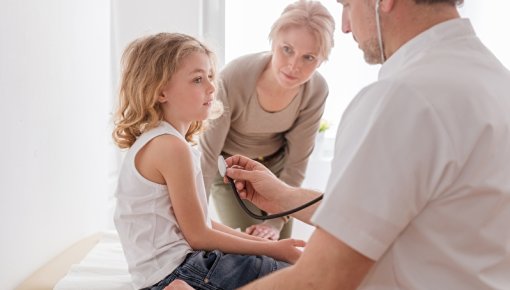An der Heiden M, Muthers S, Niemann H et al. Schätzung hitzebedingter Todesfälle in Deutschland zwischen 2001 und 2015 [Estimation of heat-related deaths in Germany between 2001 and 2015]. Bundesgesundheitsbl 2019; 62(5): 571-579.
Augustin J, Sauerborn R, Burkart K et al. Gesundheit. In: Brasseur G, Jacob D, Schuck-Zöller S (Ed.). Klimawandel in Deutschland: Entwicklung, Folgen, Risiken und Perspektiven. Berlin: Springer; 2017. P. 138-146.
Bhanu C, Avgerinou C, Kharicha K et al. 'I've never drunk very much water and I still don't, and I see no reason to do so': a qualitative study of the views of community-dwelling older people and carers on hydration in later life. Age Ageing 2019; 49(1): 111-118.
Bruno C, Collier A, Holyday M et al. Interventions to Improve Hydration in Older Adults: A Systematic Review and Meta-Analysis. Nutrients 2021; 13(10).
Cheng W, Li D, Liu Z et al. Approaches for identifying heat-vulnerable populations and locations: A systematic review. Sci Total Environ 2021; 799: 149417.
Grothmann T, Becker R. Der Hitzeknigge: Tipps für das richtige Verhalten bei Hitze (Umweltbundesamt). 2021.
Günster C, Klauber J, Robra BP et al. WIdO Versorgungsreport: Klima und Gesundheit. Berlin: Medizinisch Wissenschaftliche Verlagsgesellschaft; 2021.
Intergovernmental Panel on Climate Change (IPCC). Climate Change 2022: Mitigation of Climate Change. 2022.
Kemen J, Schäffer-Gemein S, Grünewald J et al. Heat Perception and Coping Strategies: A Structured Interview-Based Study of Elderly People in Cologne, Germany. Int J Environ Res Public Health 2021; 18(14): 7495.
Lehmkuhl D. [Climate change and its significance in the healthcare community: history, landmarks, and major players]. Bundesgesundheitsblatt Gesundheitsforschung Gesundheitsschutz 2019; 62(5): 546-555.
Leyk D, Hoitz J, Becker C et al. Health Risks and Interventions in Exertional Heat Stress. Dtsch Arztebl Int 2019; 116(31-32): 537-544.
Luschkova D, Traidl-Hoffmann C, Ludwig A. Climate change and allergies. Allergo J Int 2022; 31(4): 114-120.
Mann ME, Rahmstorf S, Kornhuber K et al. Influence of Anthropogenic Climate Change on Planetary Wave Resonance and Extreme Weather Events. Sci Rep 2017; 7: 45242.
Maughan RJ, Shirreffs SM. Muscle Cramping During Exercise: Causes, Solutions, and Questions Remaining. Sports Med 2019; 49(Suppl 2): 115-124.
Maughan RJ, Watson P, Cordery PA et al. A randomized trial to assess the potential of different beverages to affect hydration status: development of a beverage hydration index. Am J Clin Nutr 2016; 103(3): 717-723.
Mücke HG, Straff W. Zunehmende Wetterextreme sind Gründe, die gesundheitliche Anpassung an den Klimawandel ernst zu nehmen. Bundesgesundheitsbl 2019; (62): 535-536.
Nationale Akademie der Wissenschaften Leopoldina. Klimawandel: Ursachen, Folgen und Handlungsmöglichkeiten. 2021.
Robert Koch-Institut (RKI). KlimGesundAkt: Aktualisierung des Sachstandsberichts „Klimawandel und Gesundheit“. 2022.
Rocque RJ, Beaudoin C, Ndjaboue R et al. Health effects of climate change: an overview of systematic reviews. BMJ Open 2021; 11(6): e046333.
Romanello M, McGushin A, Di Napoli C et al. The 2021 report of the Lancet Countdown on health and climate change: code red for a healthy future. Lancet 2021; 398(10311): 1619-1662.
Schillo S, Richter AK, Wasem J. Untersuchung des Einflusses von Hitze auf Morbidität: Studie im Auftrag des Bundesgesundheitsministeriums. 2019.
Umweltbundesamt (UBA), Deutscher Wetterdienst (DWD). Klimawandel und Gesundheit: Tipps für sommerliche Hitze und Hitzewellen. 2019.
US Centers for Disease Control and Prevention (CDC). Heat Stress: First Aid for Heat Illness. 2017.
Winklmayr C, Muthers S, Niemann H et al. Heat-Related Mortality in Germany From 1992 to 2021. Dtsch Arztebl Int 2022; 119(26): 451-457.
IQWiG health information is written with the aim of helping people understand the advantages and disadvantages of the main treatment options and health care services.
Because IQWiG is a German institute, some of the information provided here is specific to the German health care system. The suitability of any of the described options in an individual case can be determined by talking to a doctor. informedhealth.org can provide support for talks with doctors and other medical professionals, but cannot replace them. We do not offer individual consultations.
Our information is based on the results of good-quality studies. It is written by a team of health care professionals, scientists and editors, and reviewed by external experts. You can find a detailed description of how our health information is produced and updated in our methods.

